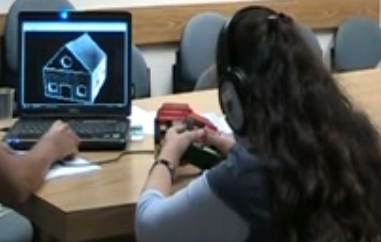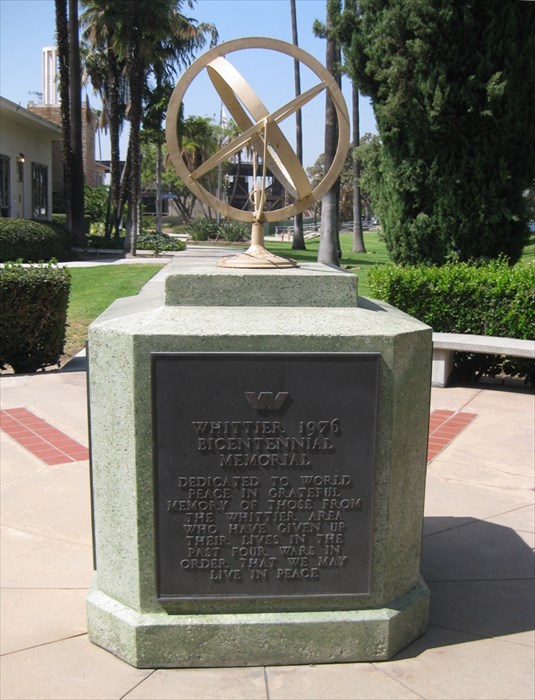

|
Scraps of moon Scraps of moon Only Once All which, because it wasflame and song and granted us joy, we thought we'd do, be, revisit, turns out to have been what it was that once, only; every invitation did not begin a series, a build-up: the marvelous did not happen in our lives, our stories are not drab with its absence: but don't expect to return for more. Whatever more there will be will be unique as those were unique. Try to acknowledge the next song in its body-halo of flames as utterly present, as now or never. ~ Denise Levertov |
1 November 2012 |
|
How to Live a Long Time on a Greek Island If you pay careful attention to the way Ikarians have lived their lives, it appears that a dozen subtly powerful, mutually enhancing and pervasive factors are at work. It’s easy to get enough rest if no one else wakes up early and the village goes dead during afternoon naptime. It helps that the cheapest, most accessible foods are also the most healthful — and that your ancestors have spent centuries developing ways to make them taste good. It’s hard to get through the day in Ikaria without walking up 20 hills. You’re not likely to ever feel the existential pain of not belonging or even the simple stress of arriving late. Your community makes sure you’ll always have something to eat, but peer pressure will get you to contribute something too. You’re going to grow a garden, because that’s what your parents did, and that’s what your neighbors are doing. You’re less likely to be a victim of crime because everyone at once is a busybody and feels as if he’s being watched. At day’s end, you’ll share a cup of the seasonal herbal tea with your neighbor because that’s what he’s serving. Several glasses of wine may follow the tea, but you’ll drink them in the company of good friends. On Sunday, you’ll attend church, and you’ll fast before Orthodox feast days. Even if you’re antisocial, you’ll never be entirely alone. Your neighbors will cajole you out of your house for the village festival to eat your portion of goat meat. |
2 November 2012
|
|
Awakening Now Why wait for your awakening? — Danna Faulds |
3 November 2012
|
|
A sufficiency of time There is time for it all. The events that you find most rewarding and fulfilling will unfold on a schedule that is neither hurried nor wasteful. There is time for your input. There is time today for you to dream the dreams you want, to create, to solve problems, to connect with friends and work with colleagues and allies. There is time to respect your moods and seasons, to fit your present occupation to your humor. Tarrying to explore a digression will not alter your destiny, nor will hurrying to cram more events into your day lead to a more satisfying result. — Josh Mitteldorf ...but habitually diverting your attention to avoid painful admissions will eat away your soul. |
4 November 2012
|
|
In the space between your thoughts, there is your truth. |
5 November 2012
|
|
Was there a time when ‘truth in politics’ was not an oxymoron? We as a people are strong enough, we are brave enough to be told the truth of where we stand. This country needs honesty and candor in its political life and from the president of the United States... I don’t want America to make the critical choice of direction and leadership this year without confronting that truth. I don’t want to win support of votes by hiding the American condition in false hopes or illusions. I want us to find out the promise of the future, what we can accomplish here in the United States, what this country does stand for and what is expected of us in the years ahead. And I also want us to know and examine where we’ve gone wrong. And I want all of us, young and old, to have a chance to build a better country and change the direction of the United States of America. — Robert F Kennedy |
6 November 2012
|
|
The election-stealers blinked With gratitude to all those who have worked to raise awareness about the election machinery in country... Mark Crispin Miller describes what happened yesterday from the perspective of the election integrity community. We may never know for sure, but it’s a reasonable guess that years of efforts have borne their first fruits. |
7 November 2012
|
|
Suffering is necessary until you realize it is unnecessary. |
8 November 2012
|
|
Seeing with your ears Bats and porpoises do it routinely: they interpret echos with precision and resolution comparable to the visual sense in other animals. They are able to interpret the objects and the landscapes around them and even locate and catch their moving prey using their ears for eyes. Prof Amir Amedi at Hebrew University in Jerusalem aims to do the same for blind people. He has invented a language for translating images into sounds, and implemented it in a computer program. People who are blind from birth have learned this system after a few weeks of training, and are able to recognize objects and even discern expressions on people’s faces. Most promising and surprising is the finding that these sounds are being processed in the visual cortex, indicating that the brain knows that the sounds contain visual information about the environmnet, and are bringing into play some of the brain’s specialized, hard-wired processing power. |
9 November 2012
|
|
Isn’t that the same thing? Success consists of getting up just one more time than you fall. Success is how high you bounce when you hit the bottom. |
10 November 2012
|
|
Make a wish Before you go to bed this evening, make a wish and think about it long enough for a chance to diffuse into your dreams. — Josh Mitteldorf |
11 November 2012
|
|
Veterans’ Day Peace hath higher tests of manhood than battle ever knew. — John Greenleaf Whittier “All the windows of my heart I open to the day.” |
12 November 2012
|
|
Jubilee = יובל There is an ancient Hebrew tradition of canceling all debts once in seven times seven years. Could it be that in Mesopotamia of old, that financial empires were already growing to be enough of a problem that traditional religious law sought to curtail them? Is there a reason Jesus threw money-lenders out of the Temple? Strike Debt is an organization founded to do for people what the Federal government routinely does for banks. Debt relief. Using contributed money, the organization (501(c)3) buys up individual debt (mostly student loans) which people in the current economy have had trouble repaying. For individuals in distress, the debt has ‘factored’, and so can often be bought for pennies on the dollar. (But how do they decide who among millions of worthy recipients to reward with this windfall?) |
13 November 2012
|
|
Duckweed In an old, deserted park That the water here had once been transparent I was found at this activity Ashamed, I walked away Returning the next day The trees rustled, — Leopold Staff, born this day in 1878 |
14 November 2012
|
|
Every great study is not only an end in itself, but also a means of creating and sustaining a lofty habit of mind. — Bertrand Russell (from The Study of Mathematics) |
15 November 2012
|
|
The Twelfth Precept Do not kill. Do not let others kill. Find whatever means possible to protect life and prevent war. — from the Fourteen Precepts of Thich Nhat Hanh Thich singles out war for special mention not only because of his first-hand experience with the horrors perpetrated by the US in Vietnam. War destroys the lives of killers as well as victims. War tears up the social fabric of victor and vanquished alike, undermining trust, blasting away the capacity to heal and forgive, sowing hatred that will continue to cause tragedies for generations to come. Indeed, anything that we can do to prevent a future war or halt an ongoing war is a heroic act, a blessed gift to our world. |
16 November 2012
|
|
Strike! The bad news is that Europe has been dragged down by economic depression due to an ill-conceived ‘austerity program’ imposed by the bankers. The good news is that the people aren’t putting up with it, but banding together to demand that their government pay more attention to the workers and less to the bankers. The general strike across Europe ranged from mass rallies in Madrid, with participation from members of Parliament, to protests in London, to outside the European Commission headquarters in Brussels, to high atop the Leaning Tower of Pisa in Italy, where protesters flew anti-austerity flags and banners. In calling for the first pan-national general strike in Europe in generations, the European Trade Union Confederation hoped to express “strong opposition to the austerity measures that are dragging Europe into economic stagnation, indeed recession, as well as the continuing dismantling of the European social model. These measures, far from re-establishing confidence, only serve to worsen imbalances and foster injustice.” |
17 November 2012
|
|
Not expecting This is the doctrine that condones no doctrine, Without ritual, Into seas unknown, ...and with this enrichment of presence, But paradox hovers in our rigid rejection of structure. When we least expect it. — Josh Mitteldorf |
18 November 2012
|
|
How Germany is getting to 100% Renewable Energy Since 2000, Germany has converted 25% of its power grid to renewable energy sources such as solar, wind and biomass. The architects of the clean energy movement Energiewende, which translates to “energy transformation,” project that more than 80% of Germany’s electricity will come from renewable sources by 2050. They claim only to have picked up where Jimmy Carter left off |
19 November 2012
|
|
Cosmology Perhaps one day you will exclaim |
20 November 2012
|
|
Not fair! Animals can show a sophisticated sense of fairness.
Frans de Waal describes an experiment he ran with Sarah Brosnan |
21 November 2012
|
|
‘It is more blessed to give than to receive.’ This old saw has given me a great deal of trouble over the years. Giving can become competitive. It can be a way to pull rank, to avoid empathic relationship. Learning to receive gratiously is an antidote, but not an easy one. What do I do if I don’t want what is given to me? Perhaps it is good practice—certainly it is polite and conventional—to accept any gift with a gesture of thanks. Is it right to express gratitude when the sentiment is disingenuous? These questions are salient for me, but if you’ve never thought in this way, I think you’re on the right track... Gratitude is a pose in relation to the world that does not depend on getting what we want. It is a choice to wallow in the splendor of all that is, to dance with the partner who shows up, to relish that which has been served to us. — JJM |
22 November 2012
|
|
Music for Black Friday Listen when you are relaxed and have leisure to let this music build its mystery. Helmuth Rilling leads the Oregon Festival Choir in the opening of Dvorak’s Stabat Mater. The shimmering sensitivity of the performance is the more impressive when you realize that Rilling, in all probability, had his first chance to rehearse this group just a few days before the recording at the summer choir festival in Oregon. Having finished with being graceful, it’s a day to make up for lost time by wanting more & more. |
23 November 2012
|
|
Gaia and Justin E. H. Smith I am growing increasingly convinced that people who believe we have an absolute moral duty to see to the well-being of all other human beings, to install water-purifying equipment in villages on the other side of the world, etc., and who, at the same time, happily contribute to the ongoing mass slaughter of animals, are really just picking and choosing their causes. There simply is no compelling reason why I, or anyone, should suppose that all and only human beings are the worthy targets of moral concern. This is not to say that you should care about animals. It is only to say that there is nothing natural or obvious or conclusive about your belief that you should care about all and only human beings. Your belief is a prejudice, characteristic of a time and place, and not the final say about where the reach of moral community ends. We have an extremely peculiar ontology, from which we suppose our moral commitments flow. It is unlike anything in human experience prior to the rise of the modern West. In all other places and times, since the appearance of the human species, there has been a presumption of some sort of shared socio-natural community that extends well beyond the boundaries of the species... To refuse to pay attention to the obvious parallels is to remain willfully ignorant. Inequality in human society emerge in direct conjunction with the domestication of animals. You can not understand the one without understanding the other. |
24 November 2012
|
|
Science, grounded in faith Isaac Newton proposed a radical hypothesis, a giant leap of faith. He would assume that physics of the stars obeyed the same mathematical laws as physics in his laboratory or his backyard or under his microscope. The laws of physics are the same everywhere and at all scales, from the tiniest to the stars and planets. This sounds to us today like the basis of all science. We can hardly imagine science without it. Yet the hypothesis is not science. It was a mystical conjecture, and we still don’t know whether it is true. In fact, we’ve learned that things at small scales obey very different laws from things on a familiar, human scale. This is the difference between quantum mechanics and classical physics. Most theorists insist that quantum mechanics really applies to everything, and that classical mechanics is only an approximation that works for things much larger than atoms. There is some evidence for this in the “correspondence principle”, but the details have never been formulated in a consistent way. It is a strange feature of QM that it is based on “measurements” that only make sense in the context of measuring devices that fall outside quantum rules. Do the laws of physics as we know them on earth apply to stars and galaxies? Astrophysicsts always assume that they do, because...because, what else is there to assume? But in the 21st Century as we develop a detailed cosmology, there are some things that just don’t fit. Some of these are subsumed in the ideas of “dark matter” and “dark energy”. There are other mysteries as well, including the origin of some cosmic rays that have too much energy to have been produced by any known physical process, and the Pioneer Anomaly — a small deviation from the calculated course by space probes from the 1970s. The main reason that astronomers don’t routinely abandon the laboratory-scale laws of physics in trying to explain these cosmic mysteries is that the possibilities are so bewildering, like trying to play a gaim without rules. Maybe Newton was wrong, at least in some details. In his 1913 essay Mysticism and Logic, Bertrand Russell argues that all knowledge is revelation, but not all revelation is knowledge. The place of scientific logic is to filter and choose among revealed truths, to accept those that can be woven into a relatively coherent logical structure, and to discard those that contradict convictions that are held yet more deeply. But without mysticism, there is no knowledge whatever (also, he concludes, no joyous engagement with life). — Josh Mitteldorf |
25 November 2012
|
|
Letting ourselves be astonished «L’enfance c’est le monde du miracle et du merveilleux : c’est comme si la création surgissait, lumineuse, de la nuit, toute neuve et toute fraîche, et tout étonnante. Il n’y a plus d’enfance à partir du moment où les choses ne sont plus étonnantes.» “Childhood is the world of miracle and wonder; as if creation rose, bathed in the light, out of the darkness, utterly new and fresh and astonishing. The end of childhood is when things cease to astonish us.” — Eugene Ionesco, born this day in 1909 “Explanation separates us from astonishment, which is the only gateway to the incomprehensible.” |
26 November 2012
|
|
Deep political reform is possible. Perhaps it is inevitable. Slavery was first banned by Great Britain, without war, and with an economy dependent on it, politicians invested in it, a hostile press, and this effort was launched and expanded by a handful of people in the back of a print shop. They didn't have the Internet; they had a post-grad student named Thomas Clarkson riding from town to town on a horse, building public understanding of the issue; they had a guy who played violin on boat parties to raise money; they organized women (who were not named, but referred to each time as "a woman" in news articles) who kicked slave-proponent asses in public debates that were advertised, promoted, and that helped reach the tipping point. They had an ex-slave who wrote a best seller about real experiences. It became a best seller because he went from town to town for decades making speeches and selling his book. This, in an economy as dependent on the sugar trade from the Caribbean as our own is now on the oil industry. This, when 3/4 of the world were either slaves or in indentured servitude. For a brilliant dissection of the development of one of the first grass roots mass activism movements, read Bury the Chains by Adam Hochschild. — from Bev Harris |
27 November 2012
|
|
Solipsism ain’t so bad Thus is the unspeakable but intelligible and practicable meaning of the world conveyed to man, the immortal pupil, in every object of sense. To this one end of Discipline, all parts of nature conspire. A noble doubt perpetually suggests itself, whether this end be not the Final Cause of the Universe; and whether nature outwardly exists... In my utter impotence to test the authenticity of the report of my senses, to know whether the impressions they make on me correspond with outlying objects, what difference does it make, whether Orion is up there in heaven, or some god paints the image in the firmament of the soul? The relations of parts and the end of the whole remaining the same, what is the difference, whether land and sea interact, and worlds revolve and intermingle without number or end, — deep yawning under deep, and galaxy balancing galaxy, throughout absolute space, — or, whether, without relations of time and space, the same appearances are inscribed in the constant faith of man? — R W Emerson, Nature |
28 November 2012
|
|
This Only A valley and above it forests in autumn colors. |
29 November 2012
|




























